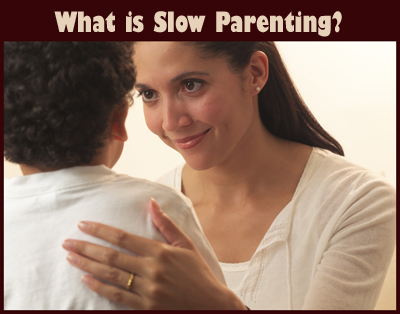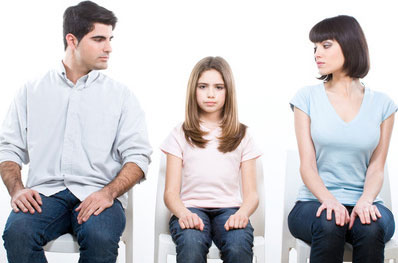
Are you a slow parent? What is slow parenting? Read on to learn what slow parenting is and find about its advantages and disadvantages.Back in the days, the child peeped through the window to catch a glimpse of the older children going to school, and said, “Mommy, when do I get to ride that big red bus?”
This dream of every little child has been very much fulfilled now. The children do not have to (or get to) dream. Their parents are already busy sending them to the so called “play schools”, changing their nonchalant lives into a routine driven mechanical clockwork. The colourful world and the lush green fields have taken a backseat, replaced by the chemical aroma of the processed notebooks which their lives are enclosed with.
Once, a man went to Thailand. There was this orphanage. He walked up to one of the classes and stood by the door. What he saw was rather surprising. There was a child breaking a toy car into pieces, and there was another child crying his heart out. The man stood by and watched it for quite some time, but he couldn’t make out why the nanny sitting in front of the children didn’t pat the child who cried or stop the other one from breaking the toy. So, he just went and asked. What he got as an answer was rather surprising:
“If they are not allowed to break, how will they learn how to build? If they are not allowed to cry, how will they learn how to laugh?”
Sometimes we really need to learn to let go.
What is Slow Parenting?
Slow parenting (or free-range parenting) is a method in which, simply put, children are allowed to grow by themselves, explore the world and make their own decisions. They are taught through practical experiences, rather than just theoretical knowledge obtained from textbooks.
As is evident from the concept, the role of the father is more important than the role of the mother in these cases. Slow parenting has expanded in popularity in recent times and this is a welcome change since it helps bring balance into the home.
The term “slow” should not be taken in the literal sense; in this context, it implies doing everything at the proper speed, indicating the significance of quality over quantity. This type of parenting lays stress on real and meaningful human connections and encourages parents to be present and in the moment.
Slow parents are in a position to keep the family schedule under control so that everyone gets sufficient downtime to rest, reflect and spend time together. They do not simply bend over backwards to provide their children with the best of everything; instead, they allow their kids to work out who they are without enforcing what they want them to be.
Parents who follow the system of slow parenting are capable of understanding the fact that the rearing of children is not a combination of competitive sports and product development. They do not view the development of kids as a long-term project but treat it as a journey. In a nutshell, slow parenting is all about showering children with loads of attention and love with no conditions attached.
Advantages of Slow Parenting
Slow parenting, though risky, has some effective advantages:
- It makes the child self-dependent. The child becomes more aware of his needs and learns how to fulfil them.
- It increases self-confidence and makes him or her more aware of the world beyond the boundary of his or her house. When the child is exposed to new situations, he handles them better as he has become more self-dependent.
- It improves the creativity and enthuses to develop an interest in exploration. Dealing with one’s own problems helps one to explore new ways of solving them. Slow parenting helps in making the child use his creativity in solving his own problems.
- It makes the child less stressful when he or she faces new situations. Since the child becomes accustomed to facing problems and dealing with them by himself, he is no longer under >stress when faced with tough situations.
Disadvantages of Slow Parenting
Too much of everything can be quite harmful, and the same goes for too much of freedom.
Here are a few disadvantages:
- The child can land up in the wrong company. Taking freedom for granted, the child can get involved with anti-socials or the wrong kind of people.
- The child can get involved in situations too risky for him or her to handle. Some things are better off without being experienced. The child, lacking maturity, can land in complications which he or she cannot handle alone.
- The child can become an addict. Less involvement of the parents is one of the important causes of drug abuse and other addictions.
- Less importance on the role of the mother is not always fruitful. We all know the value and importance of the mother’s role in the lives of children.
Slow Parenting: A Boon or a Curse?
Unfortunately, optimality in life is not defined. We can never be sure as to which is the perfect degree of freedom. The only option is trial and error through careful observation.
It has been proven that singing along with children in front of campfires teaches more than the classes in the cage-like four walls of the classroom. Going for long trips, helping the child to learn through self-realization are proven to be one of the most effective methods of raising children.
But since different children have different mentalities, different theories apply to raising them as well. So, it is advised that parents pay good attention to the behavioural aspects of the child and act accordingly.
How does slow parenting influence the development of children? Is it good to be a slow parent? What are demerits of being a slow parent? Discuss here.































